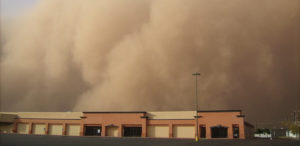Infographic: Surviving a dust storm: Do you know what to…
Doug Zanes shares advice on surviving a dust storm. Giant dust storms, popularly called “haboobs,” make for spectacular photos that everyone has seen shared o...
READ MORE![]() Contact Us 866-499-8989
Contact Us 866-499-8989
When you hire us, you're adding unmatched experience to your team, ensuring you get the best possible outcome.
Our firm maintains an impressive 99% win rate, even while accepting difficult cases other law firms have turned away.
We are not afraid of trial, and insurance companies know this. If it’s in your best interest, we are always trial ready.

No one ever expects to be involved in a car accident, suffer an injury, or need to begin looking for a Phoenix car accident attorney.

With the help of a Phoenix wrongful death lawyer, you should receive compensation for your losses.

When you are hurt in an accident, our Phoenix slip and fall lawyers are only a phone call away.

Our motorcycle accident lawyers in Phoenix understand how dangerous it can be to ride a bike. So much so that we have created safety articles for years.





As adults begin to age, the total amount of water in their bodies decreases. When combined with other factors of aging, like less sensitivity to thirst, malfunctioning kidneys, and diminished mobility, it all adds up to older adults’ suffering a higher risk of dehydration. The numbers increase past the age of 85 or for the elderly who have been institutionalized.
Nursing homes can and should take reasonable care to ensure that their residents are consuming plenty of food with the nutrients they need, as well as the amount of water they need to remain hydrated.
Any facility that benefits from Medicaid and Medicare funding is required to issue three meals daily that “meet the nutritional needs of residents in accordance with established national guidelines.” But just because a nutritionally adequate meal is offered, does not mean nursing home residents will eat it.
Nurses and staff can take simple measures to encourage better eating habits among residents:
A nursing home staff can help residents maintain healthy hydration by:

Doug Zanes shares advice on surviving a dust storm. Giant dust storms, popularly called “haboobs,” make for spectacular photos that everyone has seen shared o...
READ MORE
As a Tucson lawmaker proposes raising liability coverage required for motorists, personal injury attorneys at Zanes Law remind drivers to explore all of their options aft...
READ MORE
We are excited to announce that we have officially launched the Zanes Law Personal Injury Legal Tips podcast, featuring advice from Zanes Law owner and responsible attorn...
READ MORE